#arte exhibition catalogue
Explore tagged Tumblr posts
Text







Avori preziosi
Un aspetto sconosciuto dell'arte russa
Dalle raccolte del Museo Storico Statale di Mosca
A cura di Mariolina Marzotto, Doria de Zuliani
Fotografie di Massimo Listri
Electa, Milano 1998, 148 pagine, 24x28cm, ISBN 978-8843566822
euro 22,00
email if you want to buy [email protected]
Mostra Milano Spazio Marzotto 1 -25 Ottobre 1998 - Valdagno Centro G.Marzotto 31 ottobre-22 novembre 1998
Immagini sacre, ritratti, mobili in miniatura, cofanetti e cofani, scatole e scatoline, oggetti utili, oggetti futili, oggetti diversi





27/08/24
#avori preziosi#arte russa#arte exhibition catalogue#Milano Valdagno Marzotto 199#designbooksmilano#fashionbooksmilano
4 notes
·
View notes
Text


















Claudio Massini Trieste
testi di Giulio Ciavoliello, Massimiliano Forza, Paolo Magris, Francesca Tavarado, Pietro Valle e Roberto Vidali
Juliet ed., Trieste 2009, 295 pagine, 21x26cm, ISBN 978-88-90 302-8-9
euro 50,00
email if you want to buy [email protected]
Mostra Fili Fatali, Trieste 2009
“Fili fatali” si compone di un insieme di tele volutamente dedicate agli ambienti e alle memorie dell’ infanzia di Massini, napoletano d’origine ma trasferitosi presto a Trieste dove vive sino all’età di diciotto anni studiando decorazione pittorica all’Istituto Statale d’Arte “Enrico ed Umberto Nordio” sotto il magistero di Riccardo Bastianutto, Ugo Carà e Dino Predonzani. E’ grazie a questo percorso di studi tradizionali che il pittore acquisisce conoscenze che ritornano in un percorso espressivo interamente votato al culto della bellezza e della preziosità della superficie cromatica, entrambe coniugate secondo un sentire contemporaneo.
Ed è alla realtà triestina che le tele dipinte a tecnica mista con rilievi e incisioni si rivolgono, grazie all’allusione di alcuni titoli e di alcuni soggetti facilmente riconoscibili: stelle, fiori, calici, architetture, chicchi di caffè. In questi dipinti troviamo fissata una realtà carezzevole e istigatrice al sentimento del lusso e della voluttà, grazie alla preziosità del pigmento che è ricollegabile all’antica pittura di tradizione medioevale e presente ancora nella delicata preziosità coloristica ed espressiva dei rilievi quattrocenteschi di Carlo Crivelli. Una luce uniforme, falsificatrice, investe le cose raffigurate, quasi immobilizzandole e stendendole sul lettino dello psicanalista per poi espandersi e abbracciare orizzonti lontani: disegna l’oscillazione di un mondo orientale che si ricongiunge con quello occidentale e si trasforma in una luce moderna che incontra, nella gustosità tattile dei materiali, quella antica.
03/06/24
6 notes
·
View notes
Text

Josef Müller-Brockmann, Design by Shizuko Yoshikawa, Osaka Art Center, Osaka, October 1975 [typoswiss]






#graphic design#geometry#exhibition#catalogue#catalog#cover#josef muller brockmann#shizuko yoshikawa#osaka art center#1970s
361 notes
·
View notes
Text


From its foundation in 1919 onwards the Bauhaus was a preferred and frequent target for nationalist and National Socialists due to its international orientation, alleged communist activities and overall avant-garde position. At the same time its students were regarded as immune to totalitarianism and National Socialism in particular. Five years after the Bauhaus centenary the Klassik Stiftung Weimar reviews the relationship between Bauhaus and the Nazi regime and does away with a number of long-held beliefs. Until 15 September the tripartite exhibition at Museum Neues Weimar, Bauhaus Museum and Schiller-Museum for the first time sheds light on an uncomfortable part of the school’s history.
Alongside the exhibition Hirmer published the present and very insightful catalogue, edited by Anke Blümm, Elizabeth Otto and Patrick Rössler, that discusses the manifold hostilities brought forward by conservatives and nationalists but also examines the dealings of former Bauhaus students and teachers with the Nazi regime. The first third of the catalogue is thus devoted to a chronological history of the Bauhaus’ and its opposition and how the school’s situation gradually worsened. A harbinger of what was looming was the Weimar iconoclasm of 1930: the newly elected government of the federal state of Thuringia included the NSDAP and Wilhelm Fricke became minister of the interior and public education. In this capacity he released a decree against progressive art and culture with which he e.g. forced the Weimar art collections to remove their strategically built collection of Bauhaus artworks.
In the following and larger part the catalogue collects a total of 58 biographies of former students and teachers and how they fared under the totalitarian regime: included are of course the well-known stories of figureheads like Gropius, Albers and Mies van der Rohe but also those of e.g. Fritz Ertl who drew the plans for the Auschwitz extermination camp and Friedl Dicker who was killed in the very same camp. At the same time others like photographer Otto Umbehr (Umbo) fared well as regime-linked contractors.
The collected biographies again demonstrate that history isn’t a black or white business but spiked with shades of grey as proves the fact that a Bauhaus education can’t immunize individuals from adapting to an inhuman regime. A pivotal book and exhibition!
89 notes
·
View notes
Text
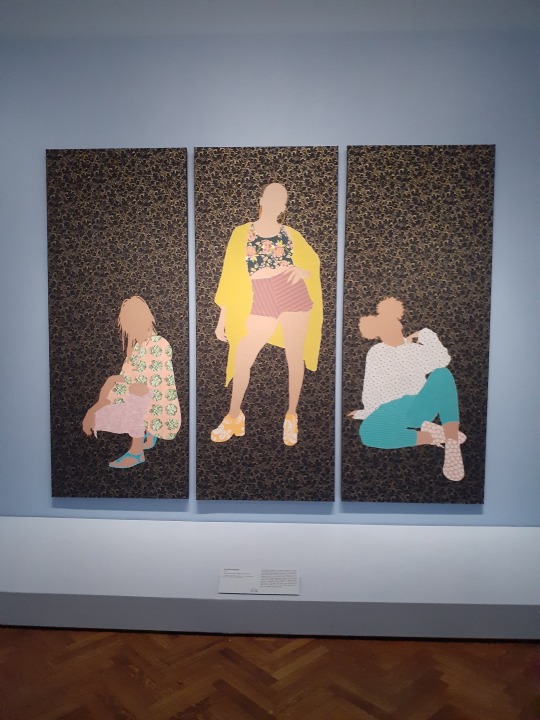

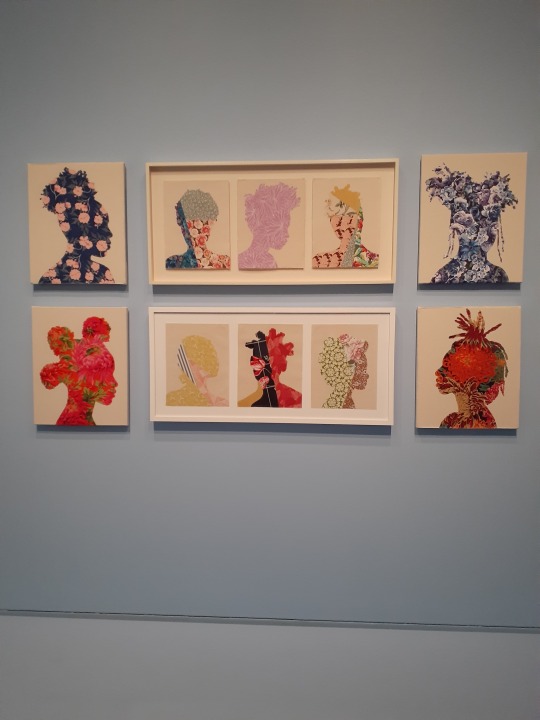
If you're in the Chicago area, highly recommend seeing Gio Swaby: Fresh Up at the Art Institute. Some truly beautiful textile work.
My work operates in the context of understanding love as liberation—a healing and restorative force. These pieces celebrate personal style, vulnerability, strength, beauty, individuality, and imperfections.
—Gio Swaby
#gio swaby#chicago#art#art institute#art institute of chicago#the photos are shit because y'all can pry my $200 android out of my cold dead hands lol#the exhibition catalogue is also 100% worth the price#haven't read it cover to cover but i've flipped through and it's lovely#people: have you seen the van gogh or dali exhibit#me: HAVE YOU SEEN THE GIO SWABY EXHIBIT
109 notes
·
View notes
Text










Wayward Refusals
#leappadbaby#design#print#art#graphic design#exhibition#exhibition catalogue#catalogue#exhibit#print design#book design
2 notes
·
View notes
Photo
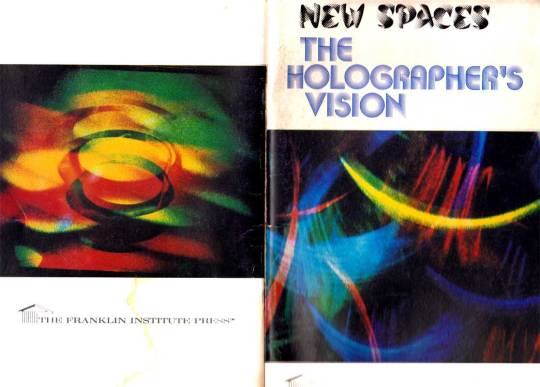
New Spaces: The Holographer's Vision catalogue, curated by Karen Spitulnik Peiffer (Franklin Institute Press, 1979).
Cover art: Rudie Berkhout
#art#science#holography#art exhibition#catalogue#New Spaces: The Holographer's Vision#Rudie Berkhout#The Franklin Institute#Philadelphia#Pennsylvania#USA#1979
42 notes
·
View notes
Text
Africa: The Art of a Continent Published on the Occasion of the Exhibition Held at Royal Academy of Arts, London, 4th October 1995 21st January 1996 :: Tom Phillips
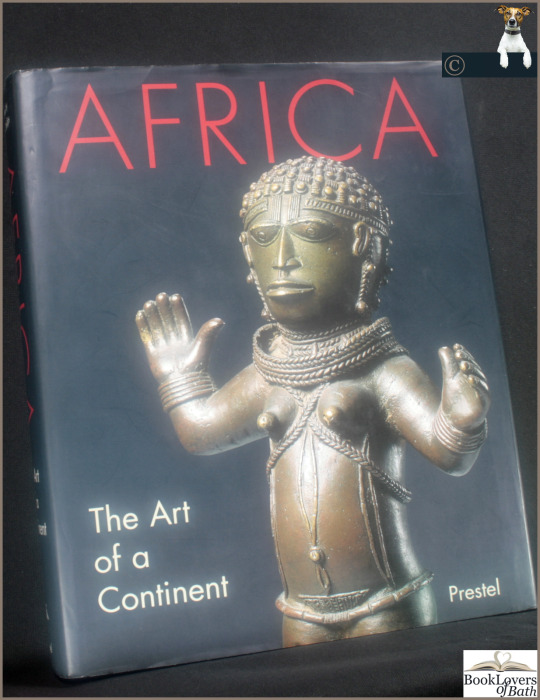
View On WordPress
#3-791-31603-6#african antiquities#african art#african art exhibitions#african sculpture#art history#books written by tom phillips#catalogues#ceramics#crafts#cultural exhibitions#earthenware#egyptian exhibitions#figurines#metalwork#royal academy arts exhibitions
5 notes
·
View notes
Text

What do traditions still mean in a society defined by spectacle and abundance? How can we rediscover the authenticity of these rituals and their profound significance?
And, most importantly, how can we restore the connection between the past, present, and future without losing ourselves in the illusion of consumption?
You will find the answers at the opening of the MOROJAN exhibition, where curator Mihaela Cozma and Professor Dr. Gaspar Loredana will share more details about the topics explored in this project.
The exhibition also features a series of exceptional illustrations by Ana-Maria Lemnaru, which perfectly complement the overall concept.
#exhibition#photoexibition#art#catalogue#skull#spiritual#romaniaart#romaninanartist#event#culturalevent#blackandwhite#blackandwhitephotography#blackandwhiteart
0 notes
Text
















Galileo Chini e Oriente
Venezia Bangkok Salsomaggiore
a cura di Maurizia Bonatti Bacchini, prefazione di Rossana Bossaglia
P.P.S Editrice, Parma 1995, 200 pagine,130 ill.colori, 24x34cm, ISBN 2021010180603
euro 45,00
email if you want to buy [email protected]
Mostra Salsomaggiore 20 maggio-20 giugno 1995
Albero Nodolini direttore artistico
Nato a Firenze nel 1873 e dieci anni dopo già orfano di madre e di padre - un sarto abilissimo suonatore di flicorno - Galileo Chini fu adottato dallo zio Dario, che lo introdusse nella propria bottega d’arte dove imparò a lavorare nella ceramica, grafica, pittura e scenografia. Nel centenario dell'inaugurazione delle Terme Berzieri da lui decorate - che oggi la società QC, con il sostegno di Cassa Depositi e Prestiti intende rilanciare all’interno di un progetto urbano firmato da Emilio Faroldi del Politecnico di Milano -, Salsomaggiore gli sta dedicando una mostra a cura di Maurizia Bonatti Bacchini e Valerio Terraroli, già allievo di Rossana Bossaglia, maggiore esperta del Liberty. Vasi, piatti, decorazioni di ceramiche, gres, disegni, pitture, manifatture…120 pezzi di ciò che un tempo si chiamava artigianato artistico fanno bella mostra a Palazzo Tommasini e Palazzo dei Congressi di Salsomaggiore, testimonianze parlanti della vita e dell’opera - stravagante - di Chini.
04/10/24
1 note
·
View note
Text
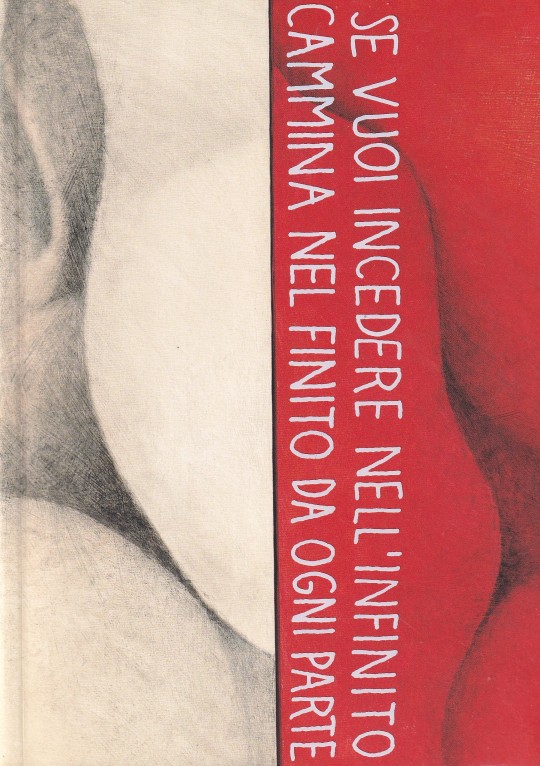
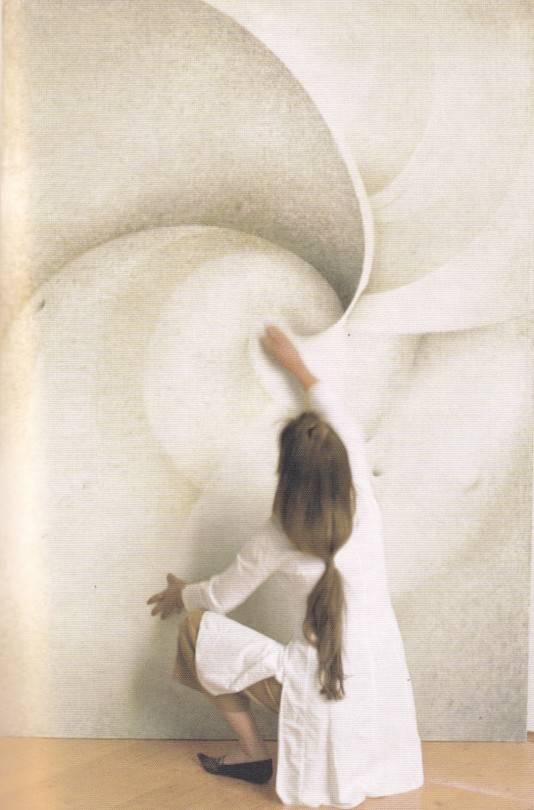
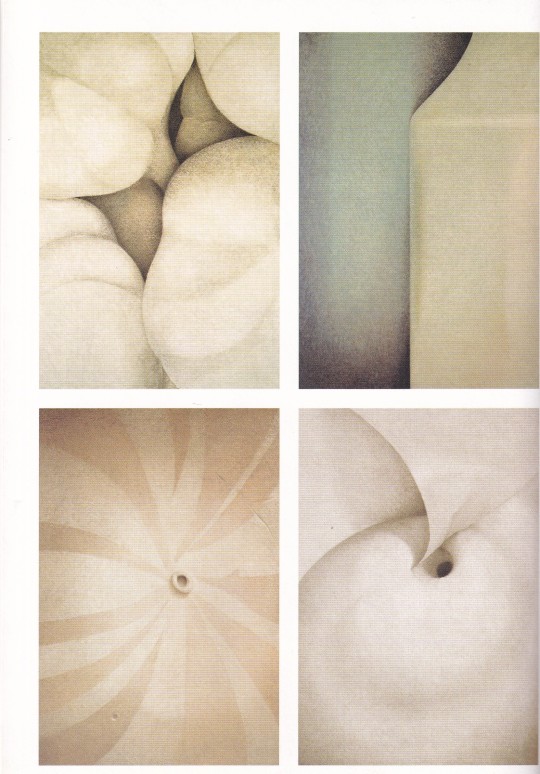
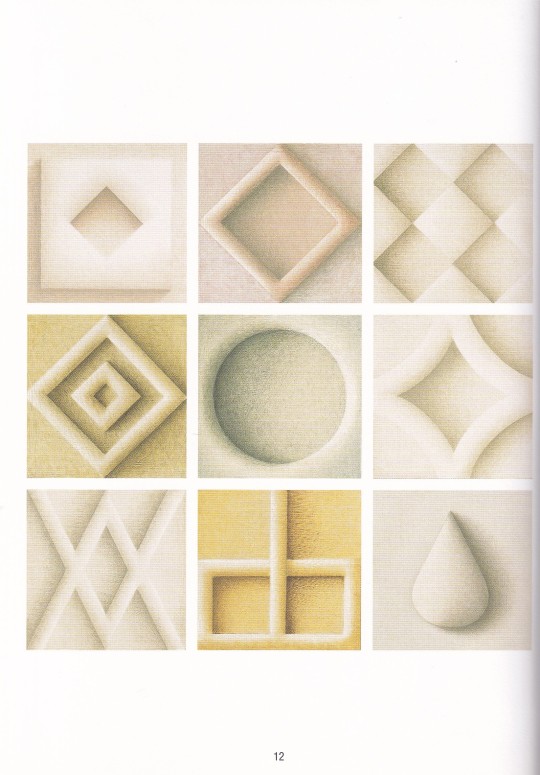
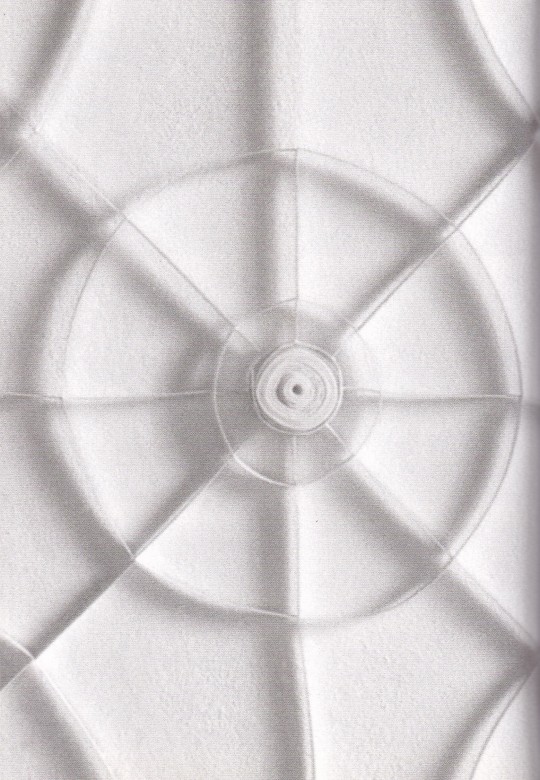
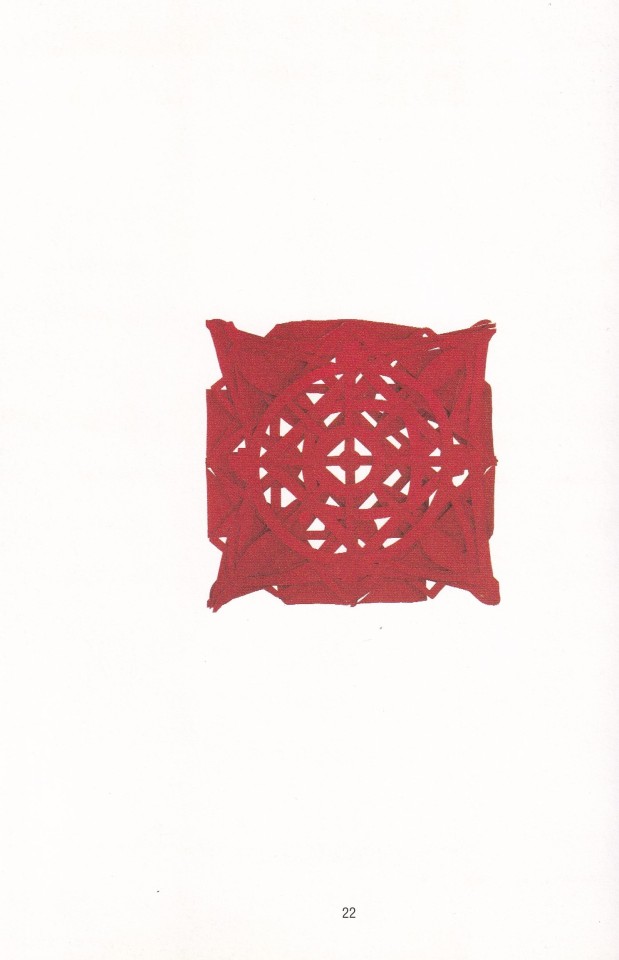
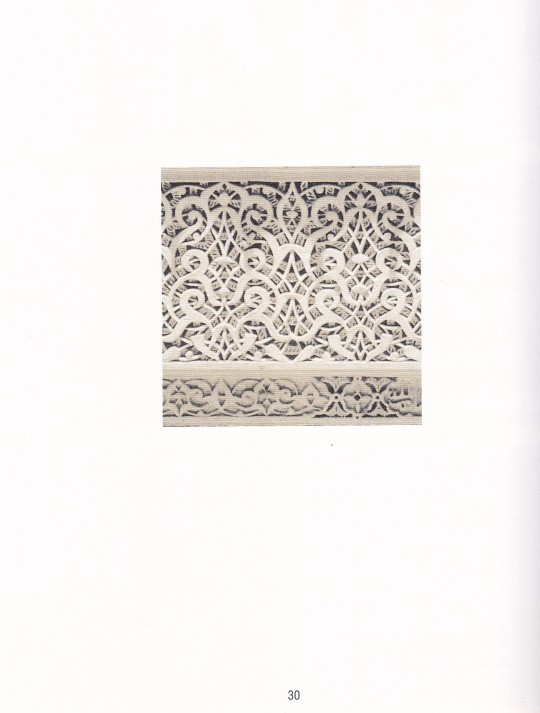
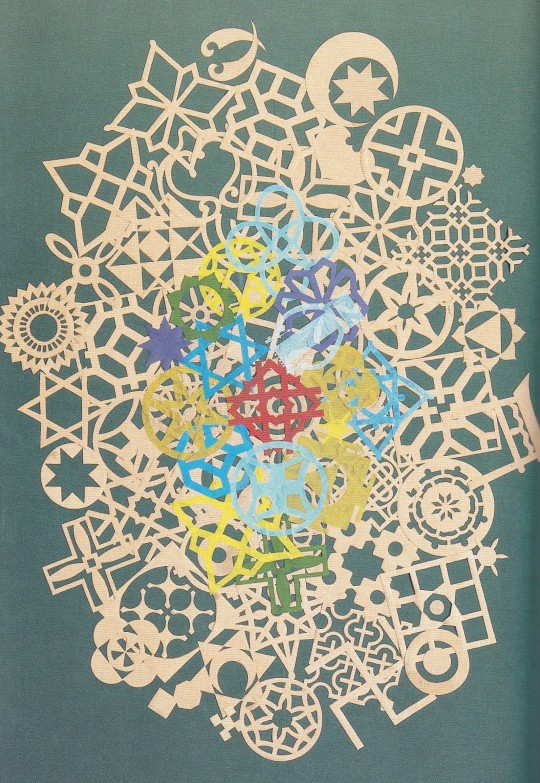
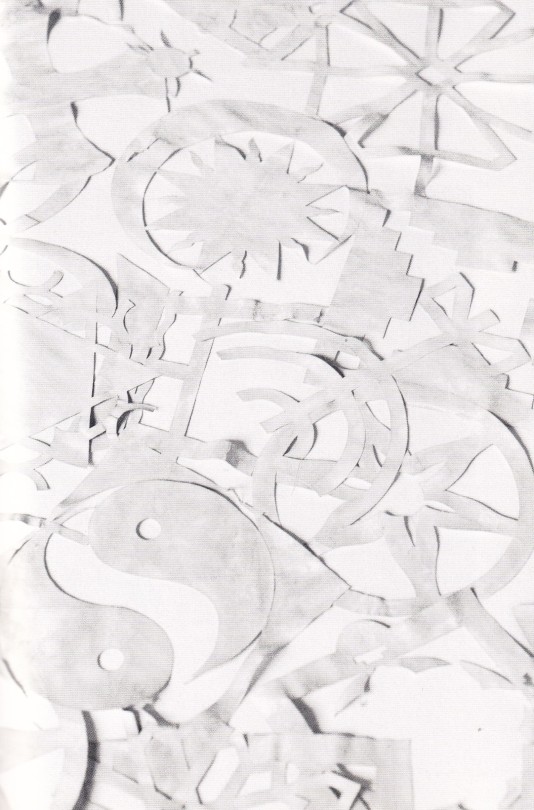
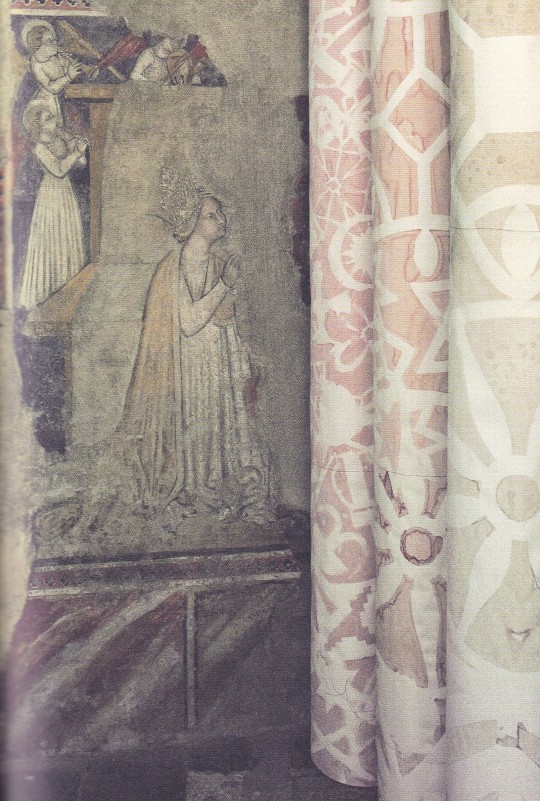
Adele Prosdocimi - Se vuoi incedere nell'infinito cammina nel finito da ogni parte
Colpo di fulmine edizioni, Verona 2007, 64 pagine, 15x21cm
fotografie di Mici Toniolo,Giovanni Ricci, Annalisa Guidetti, Nicolò Lombardi, Giovanbattista Sannazzaro
euro 20,00
email if you want to buy [email protected]
mostra di Adele Prosdocimi ad ASSAB ONE, Milano 2007
Il progetto di questo libro è di Antonella Commellato e Adele Prosdocimi
Adele Prosdocimi è nata a Milano nel 1954, dove vive e lavora.
Da anni si dedica esclusivamente alla pittura e alla scultura.
Diplomata in Architettura al Politecnico di Milano, ha lavorato a San Francisco e a New York come grafica presso il Rolling Stone’s Magazine e successivamente come designer per l’azienda di ceramiche Country Floor. Rientrata in Italia, ha lavorato a Roma da Roberto Capucci, occupandosi del disegno tessile per le sue licenze in Giappone.
Oggetto dei suoi dipinti sono particolari di pizzi o ricami. Le forme in essi contenuti paiono rosoni gotici o particolari di tarsie orientali. Disegni fatti di luce, intrisi di una dimensione mnemonica.
30/04/24
2 notes
·
View notes
Text

From: Onchi. A Poet of Colors and Forms, Yomiuri Shimbun, Tokyo, 1994 [BOOKS at, Amsterdam]
Exhibition: Yokohama Museum of Art, Yokohama, October 8 – November 6, 1994
#graphic design#art#drawing#photography#exhibition#catalogue#catalog#onchi kōshirō#koshiro onchi#yomiuri shimbun#yokohama museum of art#1990s
122 notes
·
View notes
Text
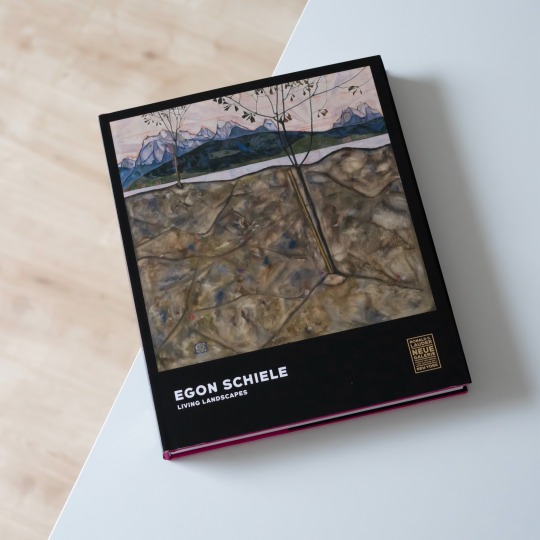
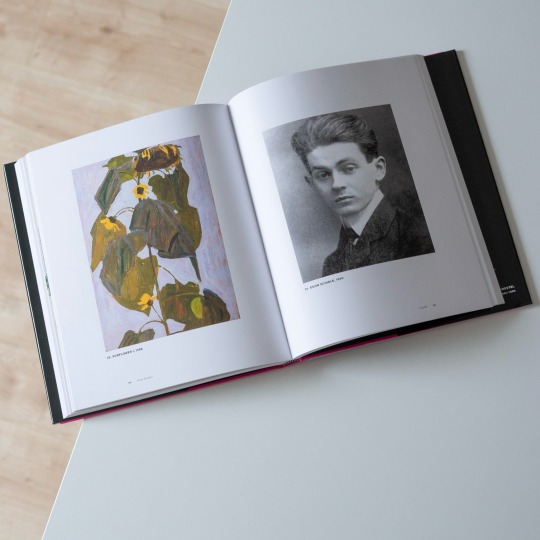
Despite constituting Egon Schiele’s largest body of work, his landscapes, townscapes and depictions of fauna are vastly overshadowed by his famous portraits and nudes. This circumstance is all the more regrettable since they are an indispensable part of his work that, just like his portraits, investigate the conditio humana and are charged with symbolism. Predominantly painted during the less intensive seasons spring and fall the paintings tell of the blossoming and fading of nature, a well-known allusion to the ephemeral nature of life itself. Gnarled trees with good reason are reminiscent of Schiele’s depiction of human bodies and the frequently returning sunflowers are shown in the different stages of their life cycle. In the figurative sense this also applies to his townscapes of which some seem to be fictitious but most are observations of a limited amount of towns. he created during escapes from bustling Vienna: on several occasions Schiele painted his mother’s birthplace Krumau, a picturesque medieval town, from different vantage points and often in invented configurations. In „Tote Stadt III [City on the Blue River]“ for example he manipulated the topography in such a way that a group of houses is on three sides surrounded by the black Moldau, giving the painting an oppressive and seemingly sealed character in which the river takes on the role of a menacing danger.
The aforementioned painting also is part of the Neue Galerie New York’s current exhibition „Egon Schiele: Living Landscapes“ running through January 13, 2025, and presenting a large number of Schiele’s landscapes and nature-related works. As usual the accompanying catalogue has been published by Prestel and, besides reproducing the works included in the exhibition, provides in-depth insights into Schiele’s enigmatic works: curator Christian Bauer e.g. explains the symbolic dimension of his landscapes while Franz Small delves deep into characteristics and underlying allusions of his townscapes, a great help for reading and understanding this body of work that is so worth discovering! Warmly recommended!
#egon schiele#expressionism#modern art#austrian art#art book#prestel#art history#exhibition catalogue#book
34 notes
·
View notes
Text
John Singer Sargent, Sargent and Fashion Exhibition, Tate Britain, London Part 2
Masterlist
BUY ME A COFFEE






























#art#art gallery#artwork#writing#art tag#essay#paintings#art exhibition#art show#art nouveau#artists#art history#essay writing#writers#history#writeblr#writers and poets#writers on tumblr#drawings#creative writing#historical#lecture#academic writing#dark academia#architecture#exhibition catalogue#art process#gallerywall#galleryart#painting
2 notes
·
View notes
Text

Catalogue is ready! Folk is Daddy!!
Kunstfabrik.cz
16. 11. 2024 - 15:00
Červený Kostelec 461, Bohemia
#
#dynternet#photography#jan dyntera#glitchart#art#contemporary#exhibition#poster#KUNSTFABRIK#kunstfabrik.cz#a scandal in bohemia#bohemia#exhibition catalogue#folkisdaddy#curated
0 notes
Text
"Kαιρός - The Irretrievable Moment" was chosen as a finalist at 2023 London International Creative Competition (LICC Award)
Delighted that my work “Kαιρός – The Irretrievable Moment” was chosen as one of 20 finalists at 2023 London International Creative Competition (LICC Award) in the category Professional / CREATE (Art) CREATOR: gd-jpeg v1.0 (using IJG JPEG v80), quality = 100 CREATOR: gd-jpeg v1.0 (using IJG JPEG v80), quality = 100 CREATOR: gd-jpeg v1.0 (using IJG JPEG v80), quality = 100 CREATOR: gd-jpeg v1.0…
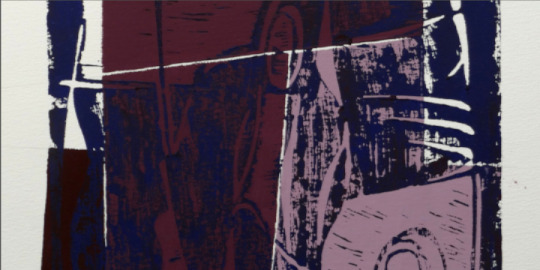
View On WordPress
#art#Art Collectors#art curator#art curators#art education#Art Exhibition#Art exhibition catalogue#art gallery#Art Print#artbook#artinspriration#artlovers#artmuseum#Artwork#gouache#gouachepainting#LinoCut
0 notes